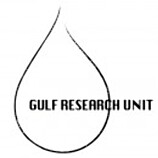
Archive: Gulf Research Blog
Blog articles from 2009 to 2012. The Gulf Research Unit is research programme based at the University of Oslo.
The anger over fuel price reform in Nigeria
Denne artikkelen er over ti år gammel og kan inneholde utdatert informasjon.
By: Ingrid Krüger
Earlier this month, the Nigerian government decided to more than double the domestic fuel price, from the initially subsidized price of 40 cents per liter. After a week of general strike, the Nigerian government gave in to the pressure, only keeping less than half of the initial price increase.
What makes a fuel price reform so difficult in Nigeria? Nigeria is the largest crude oil producer in Africa, producing more than two million barrels of crude per day(1) and cheap fuel is considered a birth right among Nigeria’s citizens as in the other OPEC member states. The Nigerian government’s ability to subsidize fuel is challenged, however, both by the vast size of Nigeria’s population and by the country’s lack of sufficient refinery capacity.
Nigeria is the most populous country in Africa, with a population estimated to almost 160 million inhabitants.(2) This makes Nigeria oil poor when crude oil production is measured in per capita terms compared to, say, sparsely populated Kuwait, that produces around the same amount of crude. Furthermore, the Energy Information Administration (EIA) reports that because of “poor maintenance, theft, and fire”, Nigeria’s four refineries are operating below capacity. In 2009 and part of 2010, Nigeria’s refineries were operating below 30 percent of capacity, forcing the country to import around 85 percent of the fuel it needed.(3) The vast population and the lack of sufficient refinery capacity in Nigeria make subsidization of the domestic fuel price a very expensive economic policy for the Nigerian government. This may help explain why international comparisons rank Nigeria’s domestic fuel price above the OPEC average and even above the OPEC average within Africa.(4)
Even though subsidization of fuel implies great costs for the Nigerian government, it is difficult to make the citizens in Nigeria accept a domestic fuel price increase. Corruption and poverty make domestic fuel price increases highly unpopular and fuel price hikes have led to general strike in the country in the past. Nigeria receives the very poor rating of 2.4 on Transparency International’s Corruption Perception Index (CPI), an index scaled from 0 to 10 where 0 is “highly corrupt”.(5) In December, the Economist wrote that “the most moderate estimates suggest that $4 billion to $8 billion is stolen from Nigeria’s state coffers every year”.(6) The corruption among politicians in Nigeria indicates a great waste of the country’s natural resources. To the citizens in Nigeria, it seems that they are picking up the bill for the politicians’ corruption. The revenues foregone by corruption could have been spent investing in poorly needed refinery capacity. Furthermore, poverty makes a doubling of the fuel price unbearable for many people. In 2004, which is the most recent year with data available, more than half the population was living below the national poverty line in Nigeria.(7) As long as corruption and poverty remain high, fuel price hikes will continue to cause great anger in the oil producing country.
1 OPEC Annual Statistical Bulletin 2010/2011: http://www.opec.org/opec_web/en/publications/202.htm
2 The World Bank: http://data.worldbank.org/indicator/SP.POP.TOTL
3 Energy Information Administration (EIA): http://www.eia.gov/countries/cab.cfm?fipsNI
4 GIZ. Data Preview ‘International Fuel Prices’ 2010/2011: http://www.gtz.de/en/themen/33729.htm
5 Transparency International: http://cpi.transparency.org/cpi2011/results/
6 The Economist. Dec 3rd, 2011: http://www.economist.com/node/21541042
7 The World Bank: http://data.worldbank.org/country/nigeria






